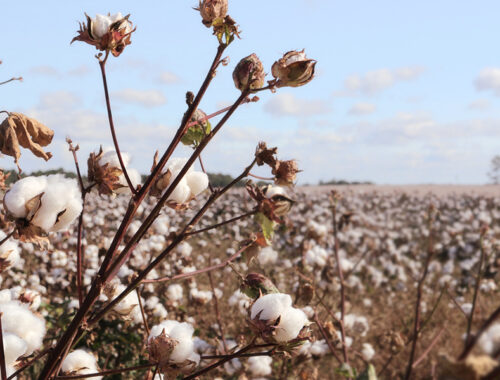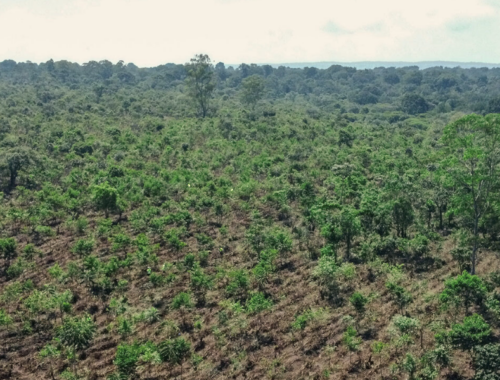
it’s time to clear the air: thought provoking insights you may not know about
Because knowledge leads the way for change, we’re supporting and helping to spread the word about the United Nation’s annual World Environment Day. It aims to draw global attention to an environmental concern that requires action and inspire us to make better choices. This year the theme is air pollution, so we’ve written up a few things about the textile industry’s contribution for you.
here’s what we know
Because of the harmful chemicals that are emitted from the use of pesticides, insecticides and fertilisers, standard industrial farming is a huge contributor to air pollution. If you hadn’t already noticed, we’re not fans of conventional cotton (to say the least)! Despite the fact that cotton only uses 2.4% of the world’s cultivated land, conventional cotton consumes 24% of the world’s insecticide sales and 11% of the world’s pesticide sales, according to the World Wildlife Foundation. Yes, we were pretty shocked when we found out this awful ratio too!
here’s what else we know
Did you know that most synthetic fibres are made from oil? Yuk. Fabrics like polyester, acrylic, nylon and spandex are all made from non-renewable fossil fuels, which require a load of energy to produce. Also, the increased demand for production speed means that even more energy is needed to run factories at full capacity, with many running 24 hours a day. Not only does this release CO2, N2O (which we understand is 300 times more damaging than CO2) and greenhouse gases that pollute our air and contribute to climate change, but these cheap synthetic fabrics release nasty chemicals into the environment as they (far too slowly) degrade.
the good news
Luckily, organic cotton is a big step in the right direction. It’s grown without the use of any harmful chemicals, pesticides or fertilisers. This not only makes it safe for the environment, but offers a healthy and sustainable future for farmers, workers and their families. Although it still uses water and land, organic cotton is usually rain fed—ours is grown using 80% rainwater—and it builds soil fertility. By helping lock CO2 into the soil, organic farmers are helping mitigate climate change.
the extra good news
While synthetic fibres can take more than 200 years to decompose in their after-life, natural, unblended fibres like cotton, wool and linen can decompose in less than a year if they end up in landfill. And here’s some maths for you. Wearing your clothes 50 times instead of 5 reduces carbon emissions by about 400% per item, per year. We hold enormous power in the products we choose, as after all, business must respond to what consumers demand.
We’re extremely proud to be GOTS certified organic and part of a community of businesses who are constantly evolving and striving to provide solutions. Our Organic bed and bath linens do more than just look wonderful.
Help support world environment day by using this year’s hashtag #beatairpollution.
You May Also Like

why fairtrade really matters
October 25, 2018
for every order you place, we plant a tree
August 7, 2024


